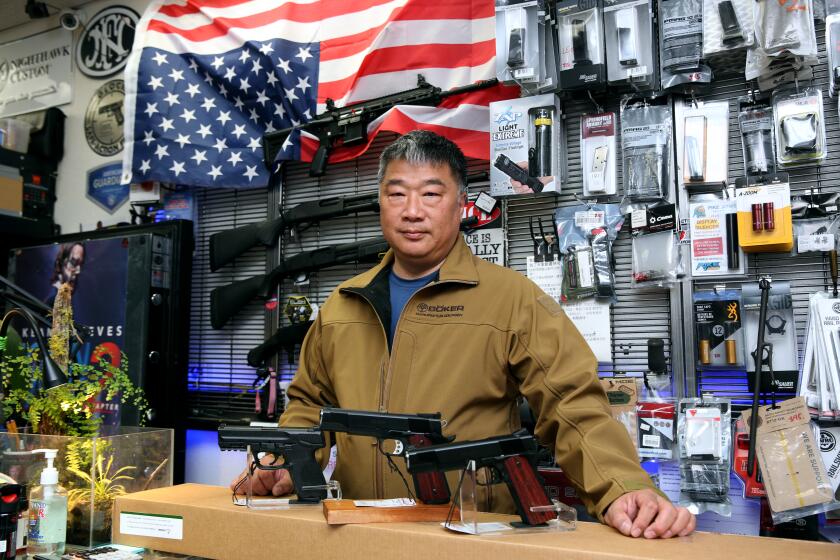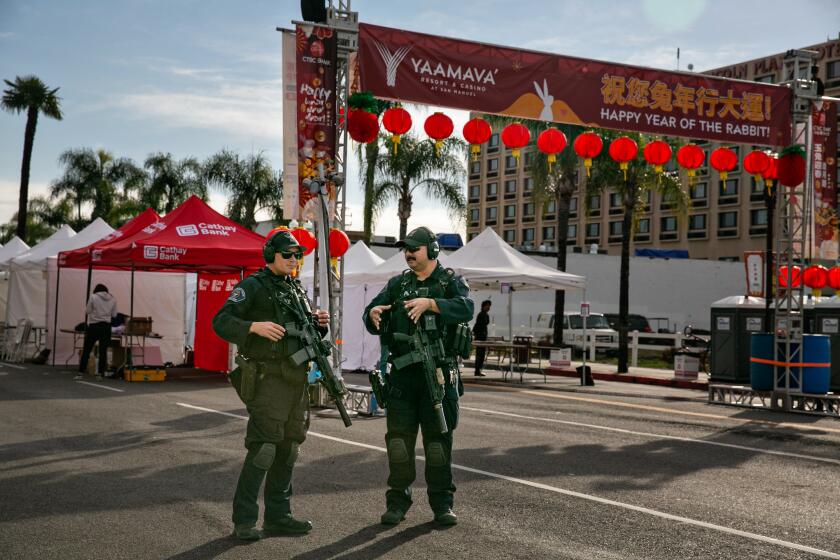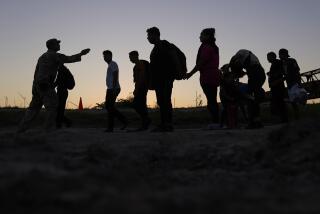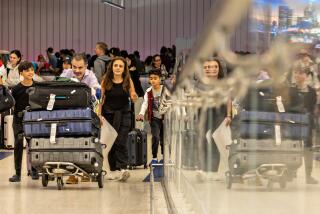A record 6,542 guns were intercepted at U.S. airports in 2022
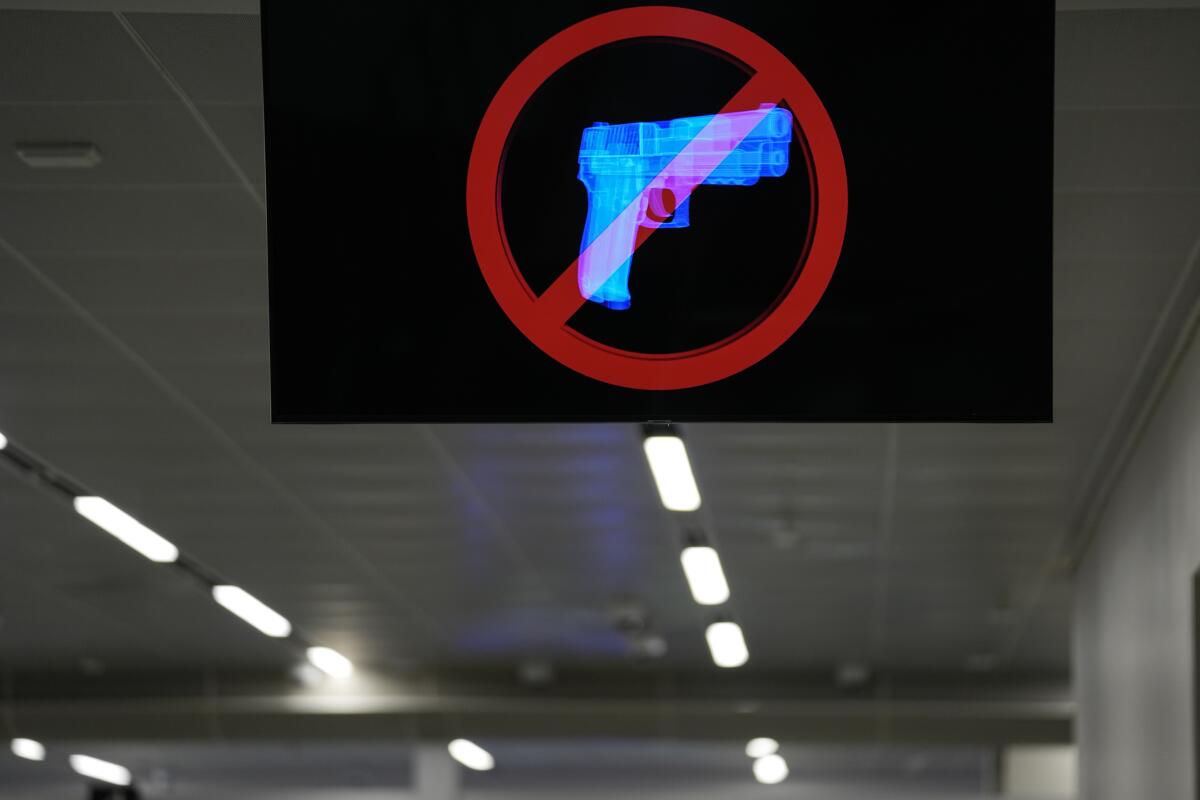
ATLANTA — The woman flying out of Philadelphia’s airport last year remembered to pack snacks, prescription medicine and a cellphone in her handbag. But what was more important was what she forgot to unpack: a loaded .380-caliber handgun in a black holster.
The weapon was one of the 6,542 guns that the Transportation Security Administration intercepted last year at airport checkpoints across the country. The number — roughly 18 per day — was an all-time high for guns intercepted at U.S. airports, and is sparking concern at a time when more Americans are armed.
“What we see in our checkpoints really reflects what we’re seeing in society, and in society there are more people carrying firearms nowadays,” TSA administrator David Pekoske said.
With the exception of pandemic-disrupted 2020, the number of weapons intercepted at airport checkpoints has climbed every year since 2010. Experts don’t think this is an epidemic of would-be hijackers but they emphasize the danger that even one gun can pose in the wrong hands on a plane or at a checkpoint.
Gun interceptions tend to happen more often at bigger airports in areas with gun-friendlier laws, Pekoske said. The top 10 list for gun interceptions in 2022 comprises Dallas, Austin and Houston in Texas; three Florida airports; Nashville; Atlanta; Phoenix; and Denver.
Nearly all the people caught claim to have forgotten they had the gun with them, but Pekoske said he isn’t sure the “I forgot” excuse is always true or whether it’s a natural reaction to getting caught. Regardless, he said, it’s a problem that must stop.
Research shows that Asian Americans, who have some of the lowest gun ownership rates in the country, have been buying more firearms in the last few years.
When TSA staffers see what they believe to be a weapon on the X-ray machine, they usually stop the belt so that the bag stays inside the machine and the passenger can’t get to it. Then they call in local police.
Repercussions vary depending on local and state laws. The person may be arrested and have the gun confiscated. But sometimes the person is allowed to hand the gun over to a companion who isn’t flying and then continue traveling. Unloaded guns can also be placed in checked bags assuming they follow proper procedures. The woman in Philadelphia saw her gun confiscated and was slated to be fined.
Those federal fines are the TSA’s tool to punish those who bring a gun to a checkpoint. Last year, the TSA raised the maximum fine to $14,950 as a deterrent.
If they have it, violators also lose their PreCheck status, which allows them to bypass some types of screening, for five years. It used to be three years, but about a year ago the TSA increased the time and changed the rules. Passengers may also miss their flight as well as lose their gun. If federal officials can prove the person intended to bring the gun past the checkpoint into what’s called the airport’s sterile area, it’s a federal offense.
California already has the strictest gun laws in the nation, but Democrats in Sacramento say more are needed.
Experts and officials say the rise in gun interceptions simply reflects the fact that more Americans are carrying guns.
Officials believe they’re catching the vast majority, but with 730 million passengers screened last year, even a minuscule percentage getting through is a concern.
Last month, musician Cliff Waddell was traveling from Nashville to Raleigh, N.C., when he was stopped at the checkpoint. A TSA officer had seen a gun in his bag. Waddell was so shocked that he initially said it couldn’t be his because he’d just flown the day before with the same bag. It turned out the gun had been in his bag but was missed at the prior screening. TSA acknowledged the miss, and Pekoske says they’re investigating.
When trying to figure out how the gun, which he said he normally keeps locked in his vehicle’s glove compartment, got into his bookbag, Waddell said he realized that he’d taken it out when he took the vehicle in for repairs. Waddell said he recognizes that it’s his responsibility to know where his firearm is but worries about how TSA could have missed something so significant.
“That was a shock to me,” he said.
More to Read
Sign up for Essential California
The most important California stories and recommendations in your inbox every morning.
You may occasionally receive promotional content from the Los Angeles Times.
